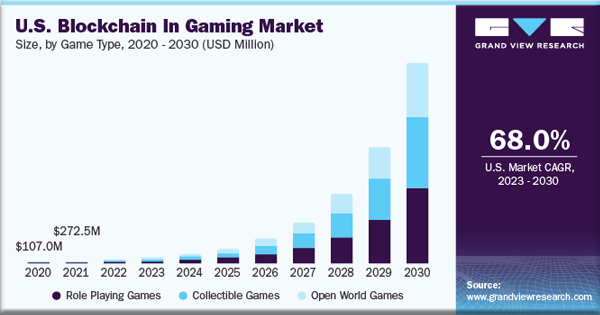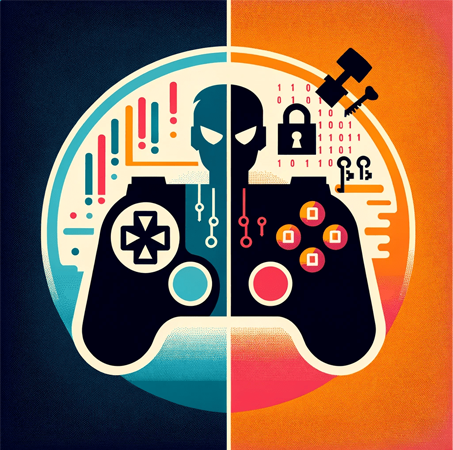
I remember spending dozens of hours in the three-dimensional worlds of computers, conquering pixels with the keyboard.
At that time, gaming was not much more than a hobby, but as I see it today the industry has reached so far.
Based on a recent report that I have read online, the global market for online gaming services has been forecasted to reach figures of 932.2 billion by the year 2037 (Research Nester, 2024).
This huge number, optimistically made me believe that the definition of ‘gaming’ has not just remained an idle pastime, but a great source of connecting with people worldwide.
Also, as I look ahead, there will likely be more emerging trends that will indeed shape the future of this field and will redefine how players will interact with gaming platforms in the coming years.
Now, here is what to look forward to in the coming years:
There used to be a time when the gaming industry could only be controlled using buttons and a joystick.
But as we look today, since the advent of innovations such as Virtual Reality and Augmented Reality, players now can step into the virtual world of gaming, and interact with other players as if they all are in a real-world setting.

That not only makes the gaming industry more exciting but also blurs the lines between physical and digital play.
More than likely, we can expect to see even more VR casinos launching ahead, where you can walk through virtual lobbies, interact with other avatars, and engage in games within an immersive 3D space.
This will not only be an enhancement in terms of the game experience but also appeal to a younger, more tech-savvy audience looking for more than just traditional online gaming.
Blockchain will play a very pivotal role in the future of online gaming since it ensures such characteristics as transparency, security, and fairness, three critical factors that help build trust in players.
It is due to blockchain-based casinos that offer provably fair games; this essentially means that users can check the outcomes independently to ensure fairness.

The use of cryptocurrencies like Bitcoin and Ethereum has already gained favor on gaming sites, rendering transactions faster, safer, and more anonymous.
It is particularly appealing to those players who value privacy and want access around the globe, unshackled by restrictions of traditional banking systems.
Mobile gaming has grown rapidly, which is not surprising since the online gaming industry has invested much in making the mobile experience better.
The continuous improvements in technology allow developers to produce apps that have high-quality casino games, are smooth-running, have an intuitive user interface, and offer a great variety of games, all fitting well on smaller screens.

Soon, expect mobile gaming apps with even better functionality: smoother game flows, faster loading, and tighter security features.
As mobile technology evolves, so will the expectations of players for top online plays, like the ones found on online casinos, to offer more sophisticated, mobile-friendly platforms.
Artificial Intelligence has been becoming one cornerstone of various industries, and online gaming does not fail to be one of them.
This technology can also enable this industry to personalize experiences for individual players.
By analyzing user data and behaviors, AI can recommend games, provide targeted promotions, and deliver a customized gaming journey that keeps players engaged.

Other than personalization, AI-driven tools are responsible for gaming measures.
That means algorithms can be used to identify signs of problems, alerting the user to resources or restrictions that promote safer play.
This embedding of responsible gaming demonstrates the potential of AI in ensuring an enhanced user experience with a safer and more ethical online gaming industry.
Regulatory landscapes are always in flux, which can change where and how online casinos are allowed to operate.
More and more governments have been looking at ways to regulate and tax this thriving industry in places where a few online games were previously restricted or forbidden.

This shift can lead to an expansion of legalized gaming markets, providing more options for players when even ensuring safe and regulated play.
This has made many operators turn their attention to countries in Asia and Africa, where online gaming is finding its way into the local markets.
One should, therefore, expect changes in the future of the market as the providers will be pressed to cater to different cultural preferences and regulatory standards.
Do You Know?
Playing video games up to 10 hours a day or 30 hours a week is considered an addiction.
Live dealer games have risen to immense popularity, due to their unique ability to combine convenience, the possibility of gaming online, with the atmosphere of a land-based casino.
That is a trend likely to continue as technology makes the process of streaming increasingly realistic and interactive.
Players can enjoy real-life games with professional dealers and thereby gain some level of trust in their interaction, which often seems to be missing in automated games.

The rise in online gaming has resulted in an ever-increasing need for tighter security measures.
The key area is cybersecurity, so advanced encryption, and security protocols are being followed to secure user-held data.
Biometric login and two-factor authentication are now becoming a standard feature for ensuring that players’ details, particularly personal and financial information, are kept secure.
In conclusion, the future of online gaming will be marked by fast-moving technological innovations, increased personalization and security emphasis, and wider global reach.
Technologies like VR and blockchain are likely to redefine the player experience, whilst, at the same time, AI and mobile optimization will make sure that the industry continues to evolve in a manner that best suits the modern player’s demand.

Thanks for choosing to leave a comment. Please keep in mind that all comments are moderated according to our comment Policy.